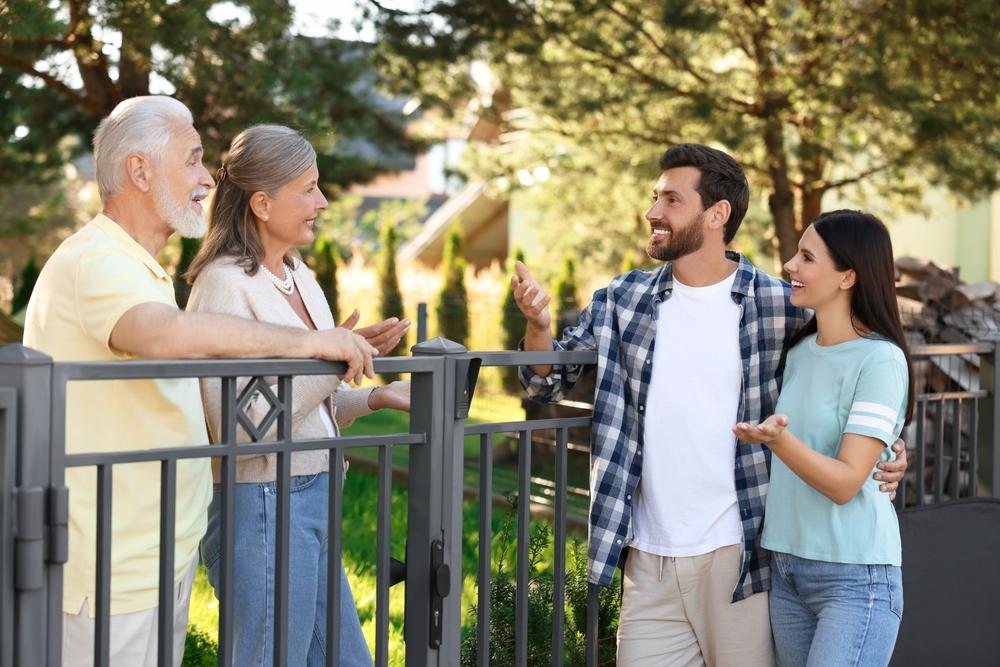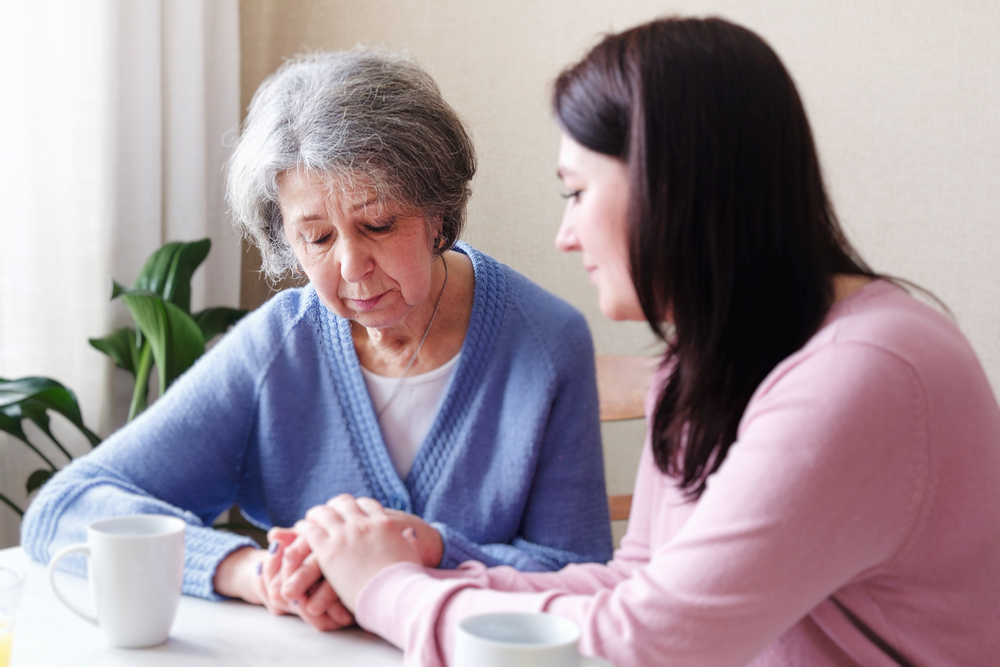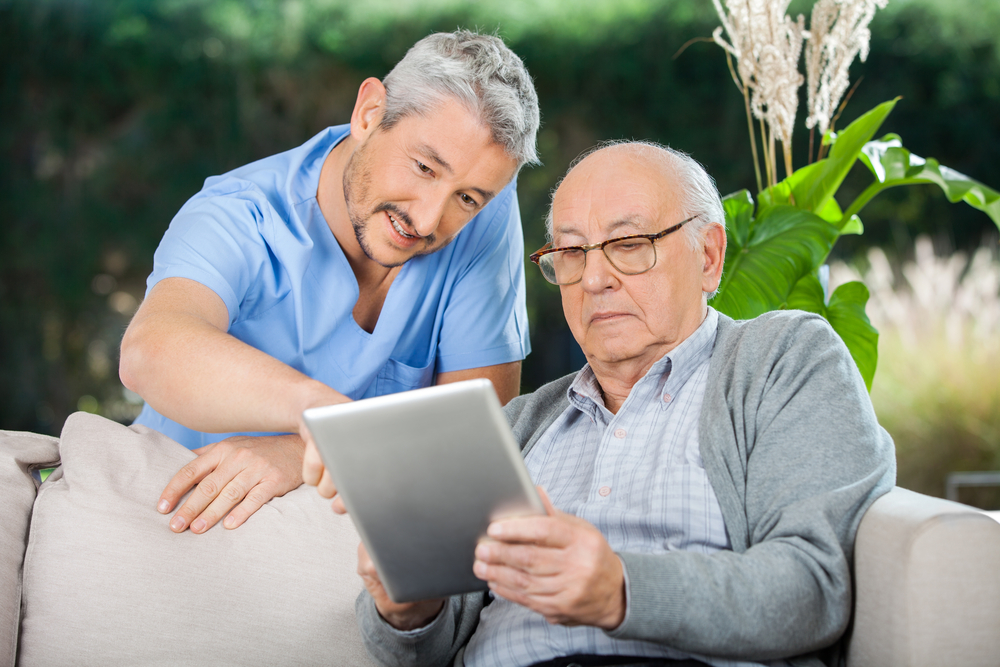 September 24, 2024
September 24, 2024
September 28th is National Good Neighbor Day, which aims to improve community engagement and reverse the growing trend of isolation in neighborhoods. This trend leads to more loneliness and fewer friendships among neighbors. Lack of community support and isolation has hit seniors the hardest, as they are most prone to losing their social connections as they age. Many homebound seniors struggle with routine errands and self-care and need assistance and companionship.
Fred Rogers taught many of us how to be good neighbors by being kind and helpful. For example, a friendly wave and greeting can mean so much for someone dealing with loneliness and isolation. We are reminded of this quote attributed to Rogers, which is evidence of his philosophy that we can all be neighbors to one another and make the world a more compassionate place.
“All of us, at some time or other, need help. Whether we’re giving or receiving help, each one of us has something valuable to bring to this world. That’s one of the things that connects us as neighbors—in our own way, each one of us is a giver and a receiver.”
Being better neighbors can start with simple gestures that only take a few minutes of our day. And here’s a little secret: being kind and doing good benefits the giver, too. Of course, we completely understand that you don’t want to be intrusive or appear overbearing, especially when many seniors are so used to being self-sufficient and may be reluctant to ask for help.
We highlighted a few ways to stay connected with seniors in your neighborhood and be a “good neighbor” in their time of need.
Ways to Lend a Helping Hand for Senior Companionship
A neighbor is often the first person who may see signs that a senior in their neighborhood needs a little extra help or companionship. They may notice that their once active neighbor is no longer outside gardening or performing their daily routine. Or they aren’t going out as much and welcoming fewer visitors. Even something seemingly insignificant, such as the mail or newspaper not being picked up on the same day, could indicate something wrong.
Studies have shown that strong neighborhood cohesion significantly reduces the risk of early death for older adults. This is partly because neighbors who know each other may feel a greater commitment to help if something feels off. Connecting with seniors in your neighborhood makes you feel empowered to help, even if it’s only a hunch.
It’s easy to start small and build trust incrementally. Here are some simple ways to connect with your senior neighbors:
Start the Conversation: The smallest gesture can make a big difference for someone lonely or socially isolated. Anytime you see a neighbor outside, it is an opportunity to make a connection, even if it’s just a wave or a friendly hello. A wave today could turn into a chat about the weather tomorrow and, eventually, more exciting and engaging conversations about family life, sports, hobbies, or other topics that build trust and rapport.
Ask for Their Contact Information: Exchange names and contact information so you can reach out in an emergency. As you build trust with your neighbor, you could also ask for the contact information of a family member or friend they use as an emergency contact in case you need to contact them.
Offer to Help with Seasonal Chores: We are headed into the colder months of the year, which may mean raking leaves and eventually shoveling snow, depending on where you live. These chores are physically demanding, and hiring a professional crew may be cost-prohibitive for a senior on a fixed income. By helping out with a rake, mower, or snowblower, you can help take this burden off their shoulders and prevent hazards, like ice or slippery leaves, that could lead to falls or injuries.
Provide Assistance for Technology Challenges: Technology can help offset some of the isolation challenges seniors face. Connecting worldwide with family and friends or participating in reading groups or social gatherings virtually is now possible. Still, while it may be easier to forge virtual connections, maintaining the physical network connection to facilitate these virtual meetings can be daunting and frustrating, even for someone who uses the technology regularly. Providing IT assistance is another way to be a good neighbor and build trust with a senior who may not be as familiar with the hardware and software used in these tools.
Offer to Give Them a Ride: As seniors age, getting around their community may be more difficult, especially if they no longer drive. They need reliable access to transportation for doctor appointments, medicine pickups, grocery shopping, and social visits. If you are available, offer to take them or pick them up to alleviate their transportation concerns. You can help them avoid paying for a ride-share or cab that may be costly or missing an appointment they should keep. A ride here or there may seem like a little, but it can go a long way in helping them stay independent and socially active.
Being a Good Neighbor Also Means Respecting Boundaries
We hope these tips have helped you think of ways to be a good neighbor to seniors on your street or block. As we get older, day-to-day activities can become more complicated, which isn’t helped by the fact that our social circles also get smaller. It can make us feel more isolated and alone and, unfortunately, more reluctant to ask for help. A good neighbor often takes the first step to connect and offer assistance and companionship.
Still, a neighbor shouldn’t feel overwhelmed or obligated to always be there for a senior in need. There may be times when a senior does not want help for whatever reason. It’s crucial to approach these situations with respect and sensitivity and know you are not entirely responsible for your neighbor’s well-being.
If they say no, be respectful but mindful that you may have to contact their loved ones or provide information if requested. There is a wide range of community programs and support available, and in- home care is an option for families if a senior is struggling with day-to-day activities or needs medical home care. Your observations and check-ins can be significantly helpful if families need more information about their loved ones.
Fred Rogers asked all of us to be his neighbors because he understood that practicing a little kindness and compassion can go a long way in making someone feel less lonely. Seniors face an increased risk of isolation and health adversity and may be more reluctant to ask for help. A simple neighborly gesture here and there can help them stay connected and, yes, enjoy another beautiful day in the neighborhood.



